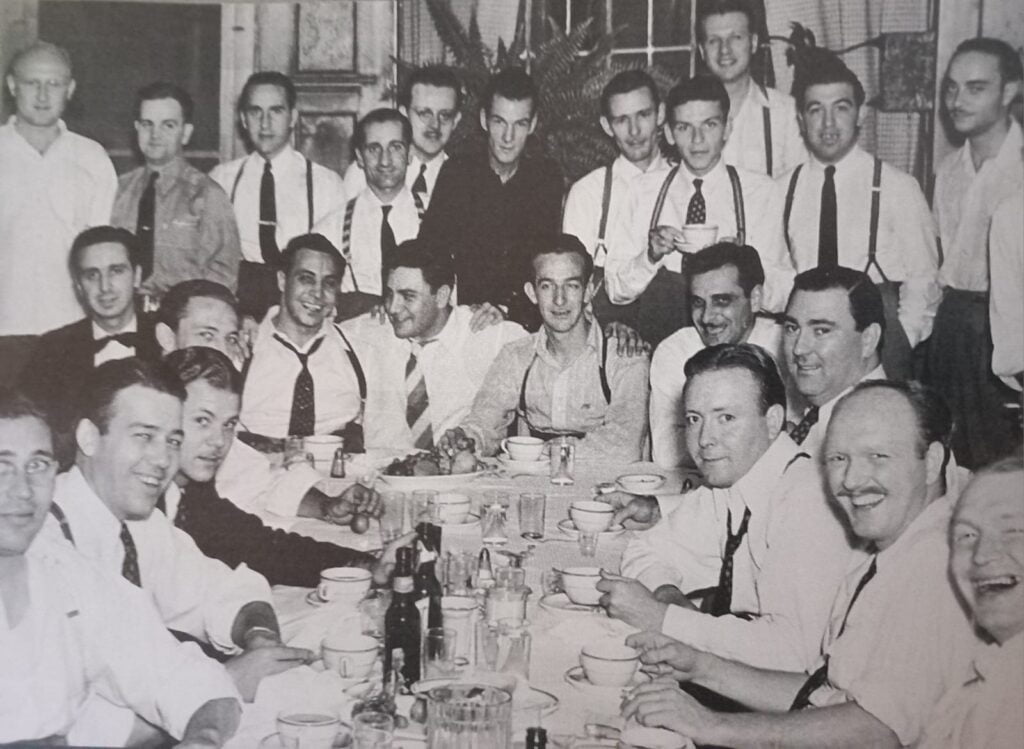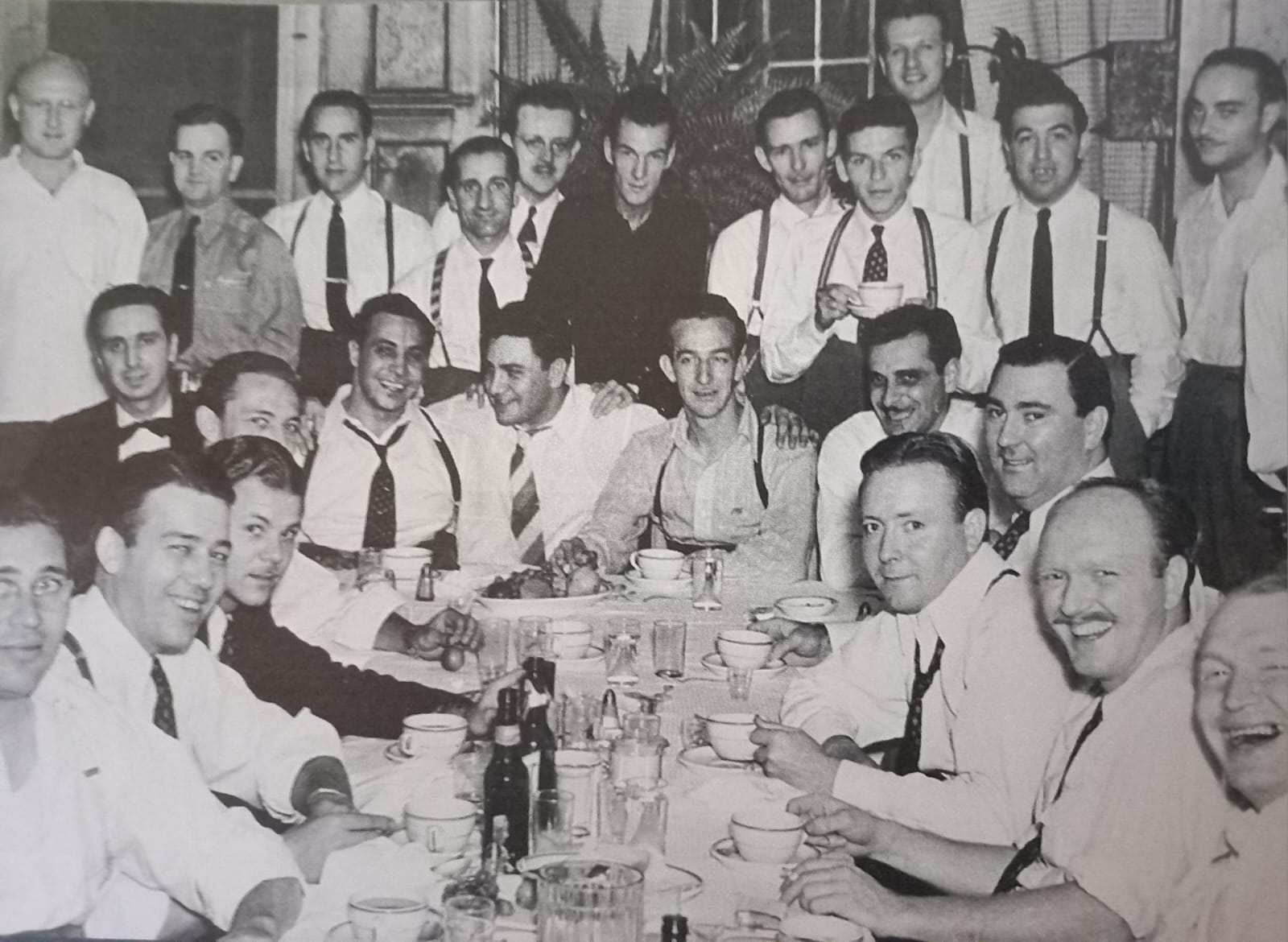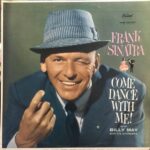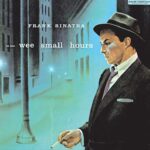
SINATRA BIOGRAPHY (1935-1939)
By Mahnuel Muñoz
The summer of 1935 was decisive for Frankie’s future. After attending a Bing Crosby show with Nancy, he understood that his destiny was to become a professional singer. Curiously, despite his great admiration for Crosby, he was clear from the beginning that he would develop a different style. To this end, he did not waste any opportunity to show his singing, whether in nightclubs or amateur contests. Sometimes he only received sandwiches or cigarettes as payment, but nothing seemed enough to break his resolve: “I worked with a basic theory: stay alive, practice as much as you can.”
On September 8, 1935, his perseverance took him to the famous talent show “Major Bowes And His Original Amateur Hour”, which was broadcast by the NBC radio station throughout the country. He performed as a member of “The Hoboken Four”, sang the song “Shine”, popularized by The Mills Brothers, and won first prize. Edward Bowes, the creator of the program, was pleasantly surprised by the group and not only invited them to later broadcasts of the show, but also took them on tour around the United States and included them in two film shorts that became the first appearances of Sinatra in front of the cameras.
FRANK SINATRA RADIO
By the spring of 1936 Frankie was gaining more and more public attention, which led to some quarrels with jealous band members. This, added to the homesickness he felt for his home and family and the ambition to become a solo singer led him to leave Bowes’ company. Without wasting a moment, he offered himself to perform at all types of events, from weddings to political rallies, and had access to the studios of several local stations where he would sing for free if necessary in order to obtain good exposure. In late 1936 he began taking singing classes with Professor John Quinlan, in which he learned to perfect his diction and discovered that he had an amazing vocal range.
In 1938 Frank learned that a roadhouse in Alpine, New Jersey, called the Rustic Cabin, was looking for a bartender to sing and emcee. He auditioned and after singing a couple of songs he was chosen for the job. Each night, the venue’s pianist and Frank performed songs and collected tips from the audience, and the performance was broadcast live on WNEW.
On the night of November 26, 1938, at the end of his day at the Rustic Cabin, Frank was arrested on charges of seducing a woman and sleeping with her with the broken promise of marriage. Frank had to pay bail of fifteen hundred dollars, which today would be equivalent to more than thirty-three thousand.
On February 4, 1939, Frank and Nancy were married at Our Lady of Sorrows Church in Jersey City. As a wedding gift, Frank offered his new wife a record recorded the day before with the song “Our Love.” After their wedding night, Frank resumed his work at the Rustic and was heard by trumpeter Harry James, who had just left Benny Goodman’s orchestra to form his own band. James went to the Rustic to see Frank live and after hearing him sing “Begin The Beguine” decided to offer him a two-year contract with a salary of $75 a week.
FRANK SINATRA BIOGRAPHY
Frank’s debut with James’ band took place on June 30, 1939 at the Hippodrome Theater in Baltimore, and the first studio recording—the song “From The Bottom Of My Heart”—came on July 13. On August 31 he recorded a piece destined to become one of his great classics: “All Or Nothing At All”, which he sang throughout his entire career and re-recorded in different styles.
Luck did not smile on Harry James’ orchestra and Frank began to consider a change of formation. He learned that trombonist Tommy Dorsey, leader of the most popular orchestra of the moment, was going to visit the Rustic Cabin; he managed to be invited to sing that night. As had happened a few months earlier with James, Dorsey was enchanted by Sinatra’s voice and style and hired him on the spot. Frank was so excited that he didn’t even worry about the conditions of the contract, something that he would later regret. Harry James was sympathetic to Sinatra’s decision and broke the contract that united him with the singer, wishing him the best of luck.
Access the Complete Biography of Frank Sinatra in the following link of Sinatra Radio 24h https://sinatraradio24h.com/category/biography/

















